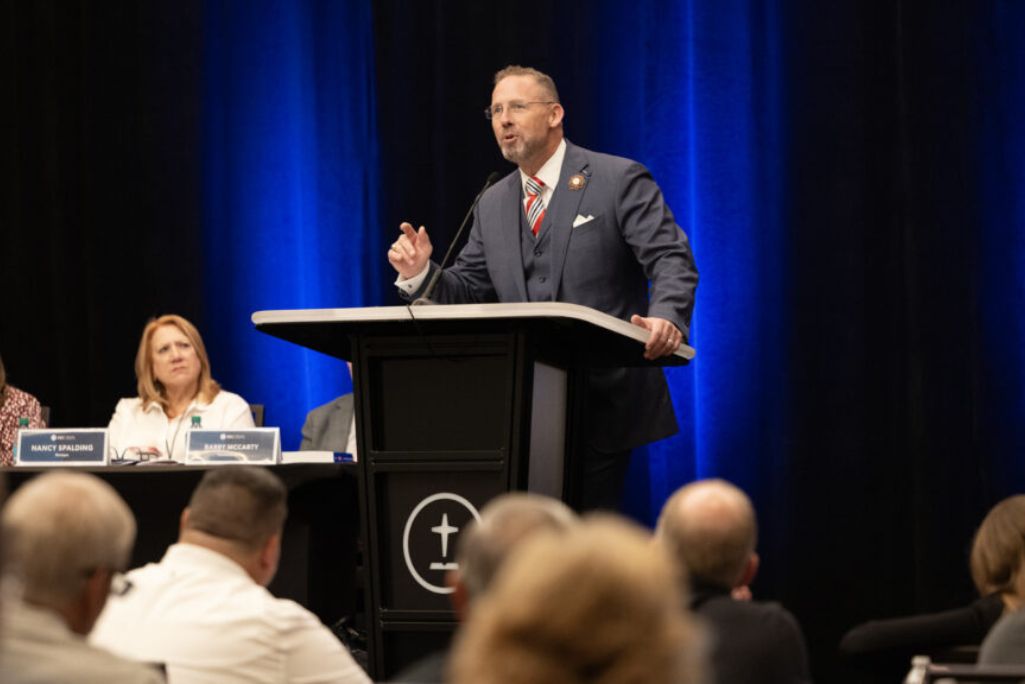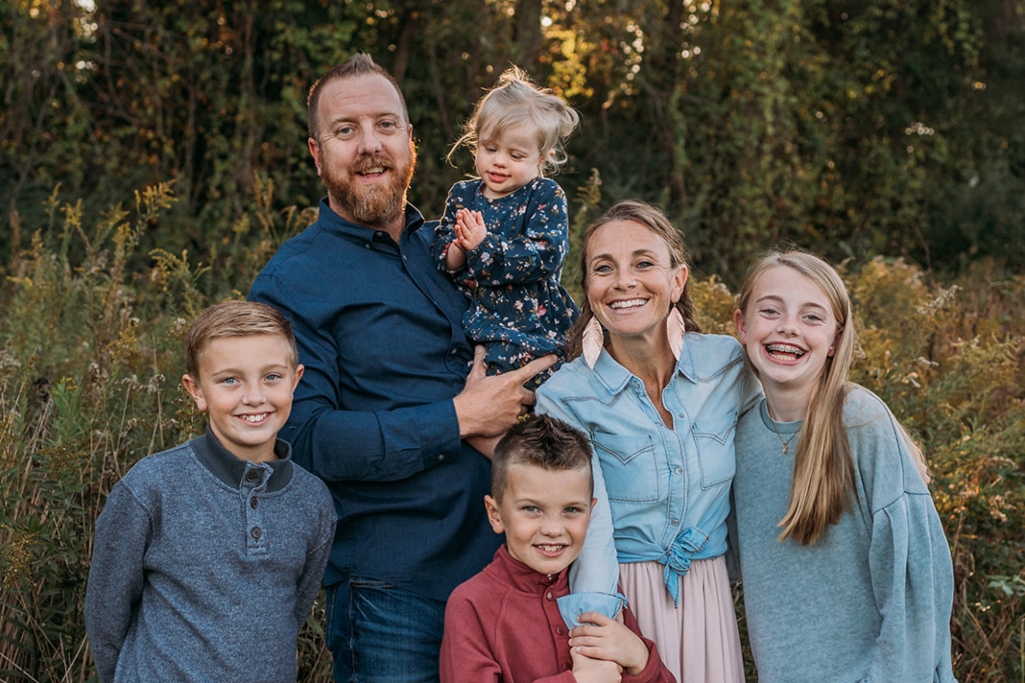
SBC president and North Carolina pastor Clint Pressley gives his first address to the SBC Executive Committee Tuesday, Sept. 17.
NASHVILLE (BP) — The Southern Baptist Convention (SBC) will thrive through challenging days ahead if it holds fast to its confession of faith and its cooperative ministry model, SBC President Clint Pressley told the convention’s Executive Committee (EC) Sept. 17.
In his first address to the EC since being elected SBC president in June, Pressley said 2025 is an ideal year to celebrate both the convention’s Baptist Faith and Message (BF&M) and its Cooperative Program (CP) since both will celebrate their 100th anniversaries at next year’s SBC annual meeting in Dallas June 10-11.
“The Executive Committee and the Southern Baptist Convention are going to be in lean years financially,” said Pressley, pastor of Hickory Grove Baptist Church in Charlotte, N.C. “But by God’s grace and endurance we will come out of that, and we will keep marching forward.”
Pressley spoke at the Hilton BNA in Nashville moments before the EC heard a report that its legal expenses since 2021 amount to more than $12 million amid ongoing discussions of sexual abuse. Additional legal expenses are expected to accrue, and the EC entered executive session to discuss legal strategies among other matters.
Yet Pressley said he is proud to be a Southern Baptist. He reminded the EC “of what is good about being a Southern Baptist,” announcing a theme of “Hold Fast” for the 2025 SBC annual meeting and a focal passage of Hebrews 10:23-24.
The BF&M is one bright spot in the SBC, Pressley said. “Our confession is biblical, and it’s clear, and it’s straightforward, and it’s Christ-centered, and it’s joyful.”
With many Christian groups having “inched away from the authority of the Bible,” he said, it is “good to be part of the fellowship of churches that have remained true to the faith once and for all delivered to the saints.”
Southern Baptists’ confession of faith helps them minister in both society and the church, Pressley noted. In a presidential election year, the BF&M speaks clearly to discussions of life, marriage, gender and religious liberty. It also serves as a teaching tool for local churches.
“I have confidence that I can take the Baptist Faith and Message, and on a Wednesday night or a Sunday night [I can] use that with all of the accompanying Scripture underneath every one of our statements” and “teach my people, and they [will] come out knowing really good theology,” he said.
The BF&M “is not designed to be dead orthodoxy,” Pressley said. Our confession “must lead to live orthopraxy. We want to do something. Our doctrine does something, and it goes somewhere.”
The Cooperative Program is another bright spot in the SBC, he said, commending Southern Baptists’ collective funding mechanism for missions and ministries.
Southern Baptists value local church autonomy, congregational church government and cooperation, Pressley said. CP allows more than 46,000 local churches to advance all those values simultaneously.
“The Cooperative Program is this unbelievably superior way for us to preserve autonomy (nobody tells me what to do), to have the congregation, our church, and cooperate for the advancement of the kingdom of God because ultimately that’s what our business is,” he said.
CP promotes missions beyond the local church, elevates evangelism and helps ensure theological fidelity, Pressley said.
CP-funded missionaries, church planters and church revitalizers have “come through a system that has been governed by a statement of faith,” he said. “They will be true to the Bible.”
Pressley has been celebrating the blessing of his Baptist heritage since first becoming a Baptist at age 16, he said. A Roanoke, Va., pastor’s expository preaching excited him when he visited a Baptist church for the first time during a family vacation, and he has been committed to Baptist doctrine and ministry methodology ever since. He urged the SBC to continue on that path.
“I have never regretted being a Baptist. I love being a Southern Baptist. I feel a genuine indebtedness, a real affection for our Southern Baptist Convention,” Pressley said. We have “so many things to rejoice in.”
(EDITOR’S NOTE — David Roach is a writer in Mobile, Ala.)


